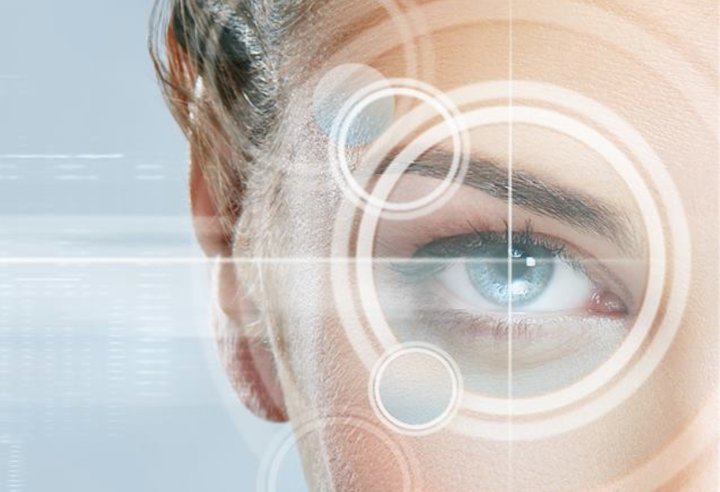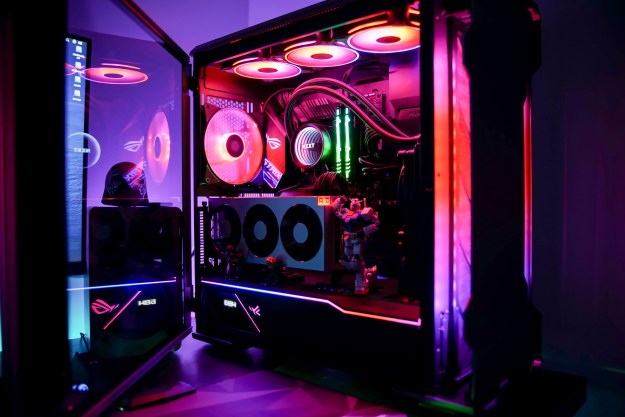
This technology, the team notes, could be used in a wide variety of applications — whether you’re looking to buy a dress online or send a photo of that dress to your friends, you can do it without lifting a finger. This hands-free system “moves as fast as you can think,” said Jim Marggraff, founder and CEO at Eyefluence. And while there’s other similar technology on the market, Marggraff insists that Eyefluence differs in its ability to function “without winking and without waiting.”
The secret lies in the firm’s reliance upon biomechanics. According to the team, the user interface is contingent upon the “eye-brain connection,” which sounds as cool as it does mysterious.
“Our prime directive is to let your eyes do what your eyes do,” Marggraff told VentureBeat earlier this year. “We don’t force you to do strange things. We have developed a whole user interface around what your eyes do naturally so that it is fast and non-fatiguing. And easy to learn. We think of the range of things that can be presented in VR. You can surround yourself with a huge amount of information. We see that as a change in how humans can process information, solve problems, learn, and communicate.”
The startup told TechCrunch that there are plans with “big brands” to incorporate their eye-controlled system into new products, but they’re staying tight-lipped on who or when or where. “We are working with the major manufacturers of head-mounted display devices,” Marggraff said simply.
Editors' Recommendations
- Use Comcast for internet? Your personal data may have been hacked
- Asus’ new RTX 4090 shattered GPU overclocking records, and you’ll be able to buy it soon
- Some Ryzen CPUs are burning up. Here’s what you can do to save yours
- If your PC is running slowly, the latest Windows 11 update may be to blame
- Nvidia just fixed a major problem that may have slowed down your CPU


